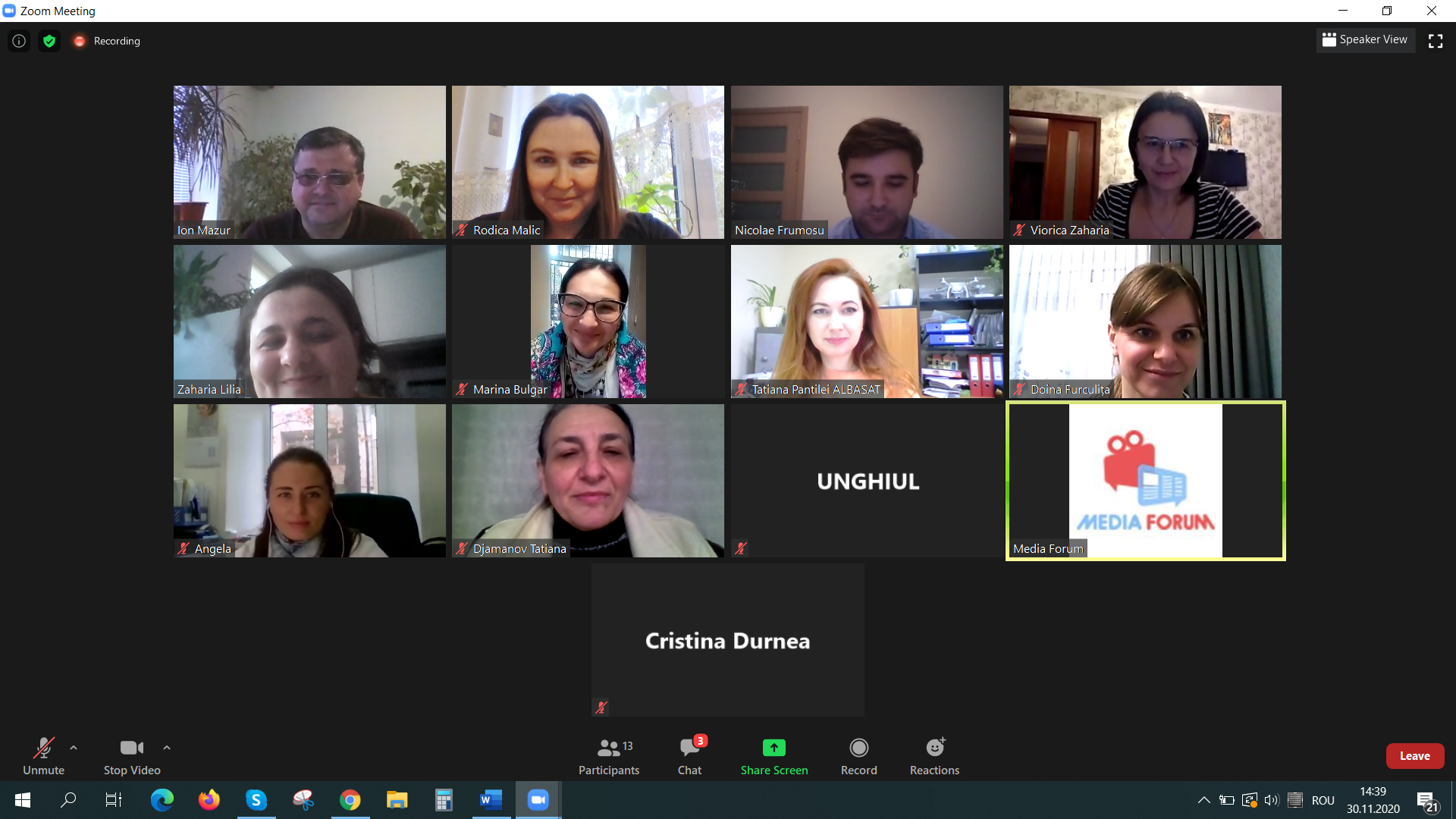back
Access To Information For Journalists: Between New Administrative Code And Old Access To Information Law

Zoom.us capture
The new Administrative Code, in force since April 2019, has made some procedures more difficult and has created additional obstacles for journalists requesting information of public interest under the Law on Access to Information. In order to clarify certain legal provisions and remove uncertainties, API has organized the webinar "New Administrative Code: Practical Issues and Access to Information Challenges," which was attended by reporters and editors from various newsrooms beneficiaries of the Consulting and Assistance Centre for Regional Independent Media Outlets.
Lawyer Nicolae Frumosu, the expert of the Consultancy and Assistance Centre, noted that Administrative Code (AC) provisions apply when we request information from central and local public authorities as well as from certain public institutions, while those of the Law on Access to Information - when addressing legal entities, including public services institutions (municipal enterprises, medical facilities etc.). “The law on access to information and the Administrative Code are not on the barricades, because everyone has their place and role; it is important to know how and when to use them. If we go to court, we will have to determine where to file a complaint, because those based on the Law on Access to Information are examined by one court and those based on the Administrative Code – by another one. If the requests do not reach the addressee correctly, because we did not know under which law to request the information, they will circulate from one institution to another and we will waste time,” the lawyer specified.
One of the webinar participants, Viorica Zaharia, editor of the MoldovaCurata.md portal, expressed her dissatisfaction that the new Administrative Code qualifies all requests as petitions, which complicates obtaining public interest information and requires applying an electronic signature. She was also interested in whether journalists can obtain information verbally, based on the AC, as provided by the Law on Access to Information. “The merger of the law on petitioning with the law on administrative litigation has created a single procedure for the public authorities. Any request now, be it a petition, a request for information, or a complaint, is qualified as a petition. The AC expressly provides that a petition should be filed with an electronic signature and failure to do so may serve as grounds not to examine it. At the same time, the AC does not exclude the possibility of verbal address; however, in such case, the institution’s official should draw up minutes on the request, and if they consider the question too complicated, they will anyway request a written request. If you address yourself verbally, ask for the registration number, if they refuse - you can go to court. We do not know how the court might react because the Code is new and there is no law enforcement practice in place. The more litigations, the less uncertainties we will have," Nicolae Frumosu said.
Tatiana Djamanov, director of Radio Orhei, asked how to proceed when an answer is offered without the administrator's signature or the answers, in fact, lack answers to the questions that had been asked. "If it does not have a signature, it is as if it has not been executed, it would be better to go to court. A means that is not capitalized by the journalists in defending the right to information, other than the court, is to file a complaint with the police under the administrative law, especially where we have concrete data. For example, they did not provide you with the information or the institution has exceeded the deadline. The police are obliged to investigate and impose sanctions on the head of the institution. Another time, they will know how to react correctly," the lawyer answered.
You can find the recording of the webinar HERE.
Within the Consulting and Assistance Centre, in November 2020, API also organized a webinar for publicity managers and agencies, "Monetization through Advertising Banners", held by the media management and advertising consultant Irina Ghelbur. Three other thematic webinars took place between August and October: “Business Strategy for Media Outlets, “Trends and Opportunities for Print Media,” “Monetization in Moldovan Media”.
In November inst., 59 editorial staff benefited from the services of the Consulting and Assistance Centre, and in the four months since the reactivation of the Centre - 158 media professionals.
The Consulting and Assistance Centre for regional independent media outlets will operate until June 2021, and newsrooms are urged to use its services whenever needed, by accessing the application on the website www.api.md.
Program of Assistance for Independent Regional Media Outlets is implemented by the Association of Independent Press Association (API) and funded by the US Embassy in the Republic of Moldova. The opinions expressed within the project belong to the authors of the project and do not necessarily correspond to those of the US Embassy.